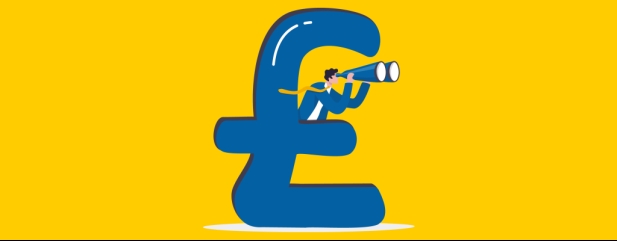Archived article
Please note that tax, investment, pension and ISA rules can change and the information and any views contained in this article may now be inaccurate.
Boom time for cash savers – but you need to be smart

It’s boom time for cash savers. The best easy access account is now paying interest of 5% according to Moneyfacts. If you had forecast that two years ago, you would have been laughed out of town. But not all savers are benefiting from ballooning interest rates.
Around £250 billion sits in accounts paying no interest. Meanwhile MPs and the FCA are leaning heavily on banks to do more to pass higher interest rates onto their customers. Indeed, research from the Treasury Select Committee recently unveiled a range of everyday savings accounts from high street banks and building societies which are paying significantly less than the Bank of England base rate.
WHAT CAN YOU DO TO EARN A BETTER RETURN ON YOUR CASH?
It’s probably going to take some time for this political and regulatory pressure to yield rewards for consumers, and even then, they may be disappointingly modest. However, there are some concrete steps savers can take to improve their own lot.
Almost everybody has a current account. It’s a necessity for happy transactions like getting paid, as well as less welcome dealings such as paying energy bills. But the interest rates on these accounts tend to be really low. It’s therefore a good idea to only keep cash in these accounts to cover your expenditure, plus a bit of a buffer, while moving the rest to higher paying savings accounts to maximise your returns.
Make sure you shop around for the best rates on savings too, rather than getting drawn in by an account from your existing provider. It might look attractive compared to your current account, but it may well be short-changing you in the context of what else is available on the market.
THE PROS AND CONS OF LOCKING UP YOUR MONEY
It’s also worth considering fixed rate accounts for some of your money. These lock your money away for a set time period, so you need to be willing to give up access to your cash. This wouldn’t sound too appealing except at the moment you will generally get a higher rate as a result of locking your money up for longer.
Moneyfacts data shows the best easy access account is paying 5%, the best one-year fixed rate is 6.2%, and the best three-year fixed rate is 6% per annum. Longer fixed term accounts also give you some certainty over cash flows and protect you from falls in interest rates. Importantly you can mix and match fixed rate accounts of different terms with easy access savings to optimise returns while also maintaining some emergency cash and hedging your bets a bit on interest rate movements. There are even cash hubs out there now which allow you to do all this in one account and with one log in, rather than schlepping from pillar to post with bank transfers.
Savers also need to be more on their toes around tax than they have been for some time. A recent Freedom of Information request lodged with HMRC by AJ Bell revealed that 2.7 million Brits are set to pay tax on cash interest this year, up 1 million in a single year. This figure includes almost 1.4 million basic rate taxpayers, a number which has quadruped in the last four years.
THE RENEWED CASE FOR CASH ISAS
This drastic rise in the tax haul is being driven by higher interest rates, in conjunction with the personal savings allowance which permits savers to receive a certain amount of interest each year tax-free. That allowance is £1,000 for basic rate taxpayers, £500 for higher rate taxpayers, and £0 for top rate taxpayers. For many years savers have shunned Cash ISAs because interest payments have been so miniscule that tax was only ever a big issue for those with huge stashes of cash.
But now that dynamic has shifted considerably. You do tend to get slightly lower rates on cash ISAs than savings accounts, for example the current best easy access ISA account is paying 4.5%, compared to 5% from an unwrapped easy access account, again according to Moneyfacts. However, if you’re paying 20%, 40% or 45% tax on that 5%, the Cash ISA comes out ahead.
Savers should also think about whether they have too much cash and might consider investing in the stock market for the longer term, in search of higher returns. The rough rule of thumb is that you should keep three to six months expenditure in cash to tide you over in the event of a financial emergency.
But recent data from the Financial Conduct Authority shows that 79% of adults with £10,000 to £20,000 of investible assets hold them in either all or mostly in cash. That suggests many people are holding more cash than they ideally need to and could afford to branch out a bit more into the stock market. But that’s a difficult message to entertain when cash rates have come so far in such a short space of time.
DISCLAIMER: AJ Bell owns Shares magazine. The editor (Tom Sieber) and author (Laith Khalaf) of this article own shares in AJ Bell.
Important information:
These articles are provided by Shares magazine which is published by AJ Bell Media, a part of AJ Bell. Shares is not written by AJ Bell.
Shares is provided for your general information and use and is not a personal recommendation to invest. It is not intended to be relied upon by you in making or not making any investment decisions. The investments referred to in these articles will not be suitable for all investors. If in doubt please seek appropriate independent financial advice.
Investors acting on the information in these articles do so at their own risk and AJ Bell Media and its staff do not accept liability for losses suffered by investors as a result of their investment decisions.
Issue contents
Feature
Great Ideas
News
- Analyst forecasts big increase in profits at Entain and Flutter Entertainment
- Novo Nordisk shares continue to soar on strong demand for its weight-loss drugs
- Risk appetite returns after softer US jobs data signals rate pause
- Experts rate shares in housebuilders as good value despite property price shock
- Walgreens’ shares droop as CEO Brewer steps down
 magazine
magazine








